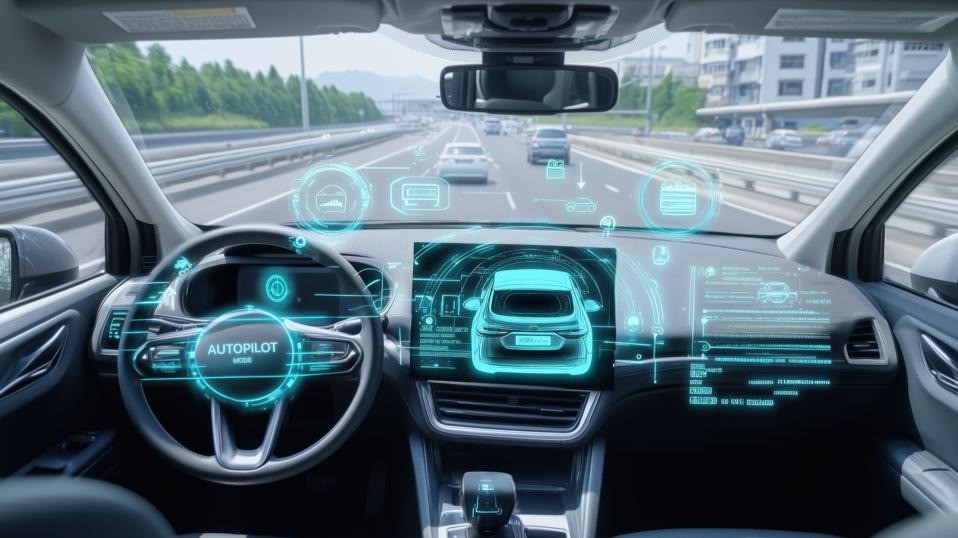The 7 Biggest Technology Trends That Will Transform Telecoms
2 July 2021
As we prepare to enter the next decade, telecoms are being transformed by technology in a variety of ways. From artificial intelligence (AI) to the threat of cyberattack, here are the 7 biggest technology trends that will transform telecoms in 2020.

5G promises some dramatic changes. The European Union’s 5G action plan includes uninterrupted 5G coverage by 2025 for railways and major roads. In addition to being able to support a hundredfold increase in connected devices per each unit area, 5G will offer ultra-low latency, improved data rates and enable network slicing. This opens the door for new services, network operation and customer experience for telecom operators.
5G will change telecom’s role: telecoms will not only be technology distributors, but also service providers. This shift will require telecoms to engage with governments, enterprise customers and alter their sales approach to help customers leverage the power of 5G.
Telecommunications is one of the industries that use artificial intelligence in many aspects of business today. Through virtual assistants and chatbots, and the artificial intelligence that runs these tools behind the scenes, telecommunications companies improve customer service and satisfaction. Artificial intelligence is essential for the optimization and predictive maintenance of telecommunications companies’ networks. AI is also hard at work detecting fraudulent activity. Additionally, through predictive analytics, artificial intelligence makes it possible for telecoms to glean actionable business insights from the volumes of data they gather every day.
Internet of Things (IoT)
Because the telecom industry enables internet device connectivity it is one of the largest players in the Internet of Things market, everyday items that are connected to one another and the internet. Internet of Things technology helps telecoms monitor base stations and data centres remotely. This helps ensure minimal downtime for the network. Since telecom is so instrumental in providing IoT infrastructure, the industry is uniquely poised to develop and offer their own services for IoT. Since IoT technology results in more devices on the network there are more opportunities for security and privacy breaches to occur so telecoms need to plan and prepare defences for that. While there are still a lot of unknowns regarding the transformation IoT will have for telecoms, there’s little doubt that it will disrupt the industry.
It’s undeniable that telecommunications companies are collecting and generating volumes of data from mobile devices and apps, wearables and more—wireless data is expected to continue to increase through the 2020s—but it will be the companies that use it to their competitive advantage that will survive. Telecommunications companies need to ensure that their networks can move extraordinary amounts of data through their network efficiently and continue to support new technologies. Telecoms also need to address the new security challenges that have arisen with new technology that use their networks. Ultimately, the data that telecoms collect can be analysed to improve customer service, determine and evaluate new products, as well as monitor and optimise the network. When evaluated and acted upon, big data can help telecoms build a stronger business.
Robotic Process Automation (RPA)
Robotic process automation can take over repetitive, rules-based, high-frequency processes and complete them very accurately. When telecoms deploy RPA for tasks, error rates and costs are reduced while customer service and operational efficiency are boosted. The telecommunications industry has one of the highest adoption rates for RPA technology since it seems to serve it so well. RPA offers high levels of scalability and agility for telecoms and can take over many tasks such as report generation, responding to customer questions, order processing, price tracking and more.
Cloud Computing
Cloud computing’s pay-per-use service model helps telecoms introduce new services, reduce their costs and adjust to market demands more effectively. The cloud offers economies of scale, scalability and cost effectiveness to telecoms. Not only can telecoms be a cloud service provider, but they can use the cloud themselves. When telecoms adopt cloud technology and switch important business functions to the cloud, they benefit from the cloud’s efficiency.
Cyber Security and Resilience
We take for granted the services that are enabled by telecoms including phone and video calls, email and messaging until we experience an outage and realise how dependent we are on those services. Due to telecoms storing vast amounts of sensitive data on complex networks that act as gateways to other businesses and because they build and operate critical infrastructure, telecoms are increasingly a target for cybercriminals. From direct cyberattacks such as distributed denial of service to indirect attacks such as malware, telecoms need to protect themselves and prepare for the future of 5G and the security hurdles that will represent. This includes having not only the right IT infrastructure in place but the talent and processes to support resiliency when attacked. Currently, there is room for improvement to the industry’s response to a cyberattack. Even false claims of attack can damage a telecom’s reputation, as well as create a considerable business impact in terms of time and money spent to respond.
Related Articles
The 10 Biggest Consumer Technology Trends Of 2026
By now, “smart” versions exist of just about every home appliance, gadget and gizmos we can think of. However, manufacturers continue[...]
The 7 Banking And Fintech Trends That Will Define 2026
By now, “smart” versions exist of just about every home appliance, gadget and gizmos we can think of. However, manufacturers continue[...]
The 8 Biggest Healthcare Technology Trends To Watch In 2026
By now, “smart” versions exist of just about every home appliance, gadget and gizmos we can think of. However, manufacturers continue[...]
The 5 Robotics Trends In 2026 You Must Get Ready For Now
By now, “smart” versions exist of just about every home appliance, gadget and gizmos we can think of. However, manufacturers continue[...]
Is Autonomous Driving Ever Going To Happen?
By now, “smart” versions exist of just about every home appliance, gadget and gizmos we can think of. However, manufacturers continue[...]
AI And The End Of Progress? Why Innovation May Be More Fragile Than We Think
By now, “smart” versions exist of just about every home appliance, gadget and gizmos we can think of. However, manufacturers continue[...]
Sign up to Stay in Touch!
Bernard Marr is a world-renowned futurist, influencer and thought leader in the fields of business and technology, with a passion for using technology for the good of humanity.
He is a best-selling author of over 20 books, writes a regular column for Forbes and advises and coaches many of the world’s best-known organisations.
He has a combined following of 4 million people across his social media channels and newsletters and was ranked by LinkedIn as one of the top 5 business influencers in the world.
Bernard’s latest book is ‘Generative AI in Practice’.










Social Media